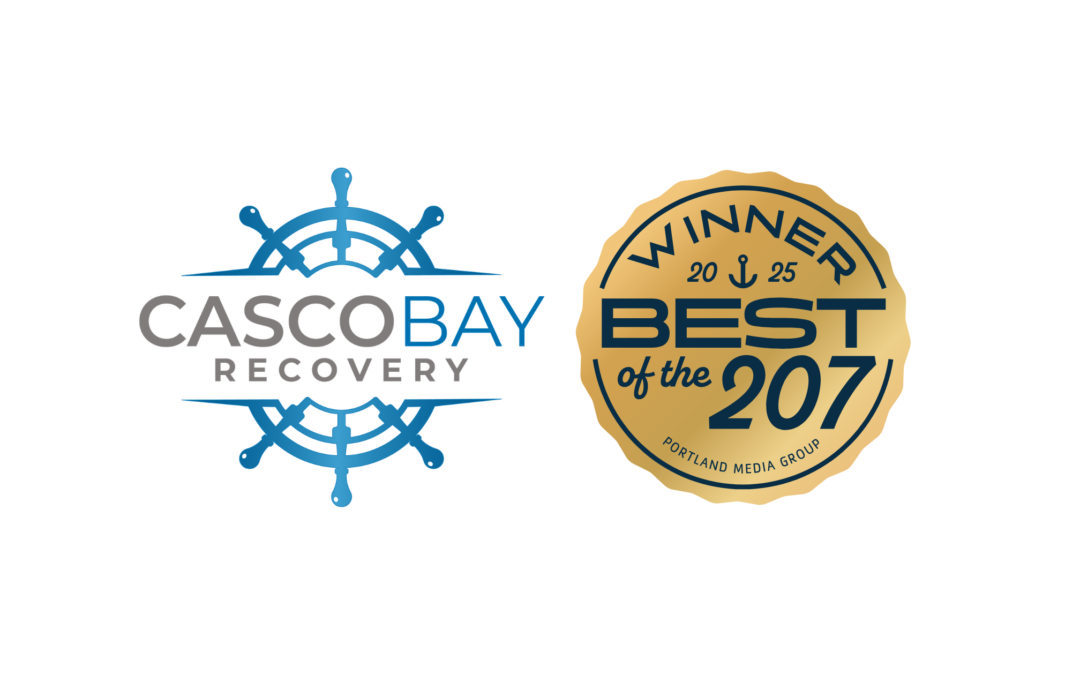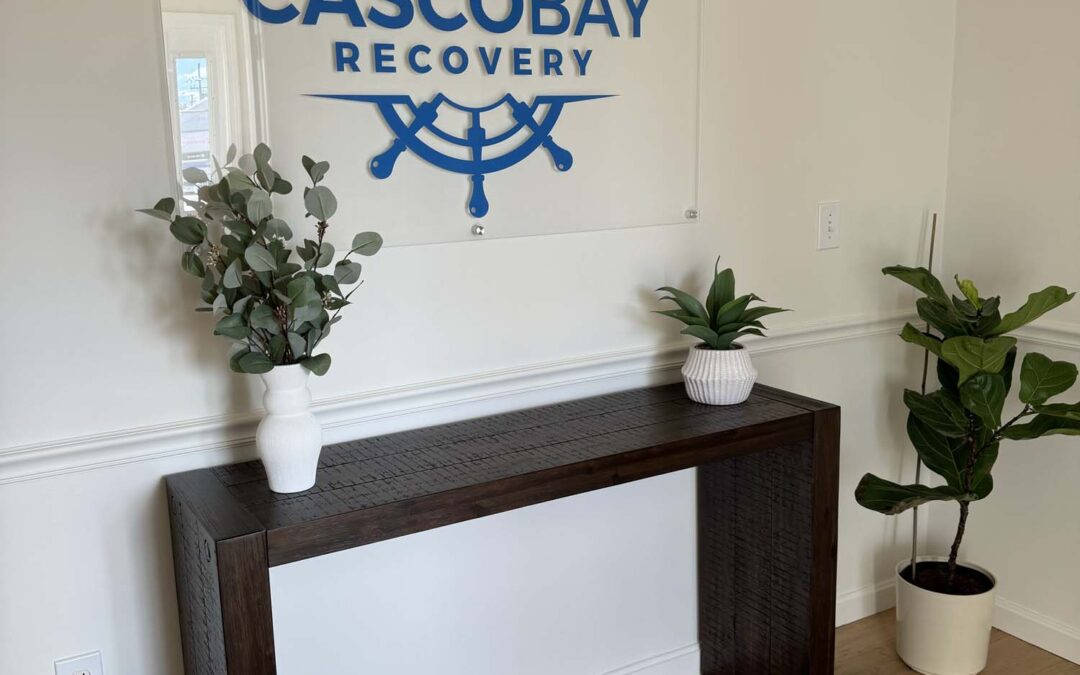As the New Year approaches, many of us start to think about setting new resolutions or goals for ourselves. While this is a great way to start fresh and set yourself up for success, it’s important to consider how your New Year Resolutions may impact your mental health. Many turn to drug and alcohol misuse as a coping mechanism.
If you or a loved one is struggling with addiction or substance abuse, our addiction treatment programs in Portland, ME can help you achieve recovery. Start the road to recovery today!
How Resolutions Affect Your Mental Health in the New Year?
Creating New Year’s resolutions can be an effective way of setting goals and making positive changes. However, people need to remember that these resolutions should be realistic and manageable. It can be easy for individuals to set unrealistic expectations or put too much pressure on themselves when it comes to meeting their goals.
Without properly reflecting on their goals beforehand, they may end up feeling overwhelmed or discouraged if they don’t immediately reach them. This kind of pressure could lead to negative self-talk and have detrimental impacts on an individual’s mental health in the New Year.
Setting goals and taking action to achieve them can lead to increased feelings of accomplishment, which may promote well-being. Additionally, making small lifestyle changes to improve physical and mental health, like exercising more or engaging in experiential therapy, can provide a sense of purpose and increase self-confidence.
On the other hand, overly ambitious goals or unrealistic expectations of oneself may lead to feelings of guilt or failure if not achieved. Research has shown that this type of “all-or-nothing” thinking can contribute to depression and anxiety if not managed properly. Additionally, placing too much pressure on oneself to change habits in the New Year may be overwhelming and lead to burnout.
Individuals must set realistic goals for themselves when making New Year’s to maintain good mental health during the holidays. It may be helpful for those embarking on their resolution journeys to consult with a therapist or psychologist to better understand any underlying motivations behind their goals and develop strategies for coping with potential setbacks along the way.
The Importance of Reflection
Reflection is an important tool to help individuals better understand themselves and their place in the world. By taking a step back and reflecting on their thoughts, feelings, behaviors, and relationships, a person can gain insight into what changes they need to make to improve their lives.
Self-reflection can also provide a chance for them to recognize any patterns or approaches that are not working for them and replace them with healthier alternatives. This can be especially helpful in overcoming difficult times or adjusting to big life changes.
People must take the time to realistically reflect on what they would like to achieve before making any New Year’s resolutions. Reflecting on how they plan to reach each goal and acknowledging potential challenges along the way can help them approach resolution setting more mindfully. This will enable them to create achievable objectives while reducing the risk of putting too much pressure on themselves during this process.
New Year’s Resolutions Statistics
New Year’s resolutions are widely celebrated as a way to set personal goals and create positive change in our lives. But how many of us keep them? Research suggests that a shocking 80% of New Year’s resolutions fail by the second week of February.
According to a survey conducted by the University of Scranton, the top five most popular resolutions for 2018 were:
- Lose weight
- Get organized
- Live life to the fullest
- Spend less/save more money
- Enjoy life more
While these may seem like lofty goals at first glance, a closer look at the data reveals that many of us are setting ambitious plans for ourselves. According to the same survey conducted by the University of Scranton, only 8% of people who make New Year’s resolutions follow through and achieve their goals.
The good news is that while it can be difficult to stay on track with our ambitions for an entire year, many of us can take small steps towards improving our lives in the months ahead. With some dedication and perseverance, we can all make this year successful one resolution at a time.
What Causes People to Quit Their New Year Resolutions?

As the year comes to an end, many people are setting their sights on the future by making New Year’s resolutions. While it is exciting to start the new year with ambition and a plan for self-improvement, all too often these resolutions don’t last long. So what causes people to give up on their New Year’s resolutions?
- Unrealistic Expectations: Setting lofty goals that are too difficult to achieve can lead to discouragement and feelings of failure, which can cause people to give up on a resolution before they achieve it.
- Lack of Motivation: Without having something concrete to motivate them and inspire them to keep going, some people may quickly lose enthusiasm for their resolution and decide they’re not going to pursue it any longer.
- Not Establishing Clear Goals: Not having a well-defined plan of action or being able to measure progress toward a goal can make it hard for people to stay focused and committed when trying to stick with a resolution.
- Not Seeking Help/Support: Without getting help from family, friends, or other external sources, individuals may struggle with keeping up with their New Year resolutions due to feelings of isolation or lack of encouragement.
- Loss of Interest: Over time, some people may slowly lose interest in their New Year resolutions as other aspects of life become more important and take priority over reaching the goal set at the beginning of the year.
If you or a loved one is struggling with a mental health condition along with addiction, consider substance abuse counseling in Maine. We can help you take the first steps toward sobriety.
How Can a Person Create Healthy Resolutions?
Creating healthy New Year resolutions can be an excellent way to make tangible progress toward improving one’s life. A few steps can help a person craft meaningful and achievable resolutions that will bring about lasting change.
It’s essential to ensure the goals are realistic and attainable. It may be tempting to resolve to completely overhaul one’s lifestyle, but this is often too broad and difficult to sustain over time. Instead, break down the goal into smaller, more manageable chunks. For instance, if a person wants to improve their physical health they could choose specific activities such as going for a thirty-minute walk each day or eating better by cutting out processed foods.
People must also create an action plan for how to achieve the resolution. It is helpful for people to identify necessary steps and set deadlines for each step so that they have structure and accountability as they work toward achieving their goals. For example, if a person wants to increase their savings account balance by the end of 2021, they might set up automatic deposits from their paycheck into their savings on the first of every month.
Finally, enlist some form of external accountability or support system. Having someone check in regularly and offer encouragement throughout the journey can provide motivation when things get tough or progress begins to slow down. If possible, engage in motivational enhancement therapy (MET) to build your confidence and provide extra encouragement.
By following these steps a person can create healthy New Year resolutions that are tailored specifically for them and designed for them to reach their desired outcome. As long as they keep track of progress made along the way and stay accountable through external sources, then these resolutions should have the best chance at success!
Steps for Creating Healthy Resolutions
Step 1: Set realistic and achievable goals. Think about the areas of your life that you would like to improve, then make a list of goals that are specific and measurable.
Step 2: Make a plan to reach those goals. Break down each goal into smaller, more manageable steps and create a timeline for when you would like to achieve each step. This will help keep you on track as you work towards your ultimate goal.
Step 3: Track your progress. Keeping track of your progress can be motivational and provide insight into how well your plan is working. You may also be able to identify any stumbling blocks or obstacles along the way so that you can adjust accordingly and stay on the right path.
Step 4: Reward yourself for success. Celebrate the successes along the way with small rewards as incentives to stay motivated and continue making progress towards achieving your goals.
Step 5: Reevaluate as needed. Life can change suddenly, sometimes in ways we couldn’t have anticipated or planned for in advance. If that happens, be sure to evaluate what has changed and adjust your plans if necessary to stay aligned with your ultimate objectives.
Casco Bay Recovery Can Help You With Your Mental Health

Casco Bay Recovery offers a range of addiction and mental health services that can help you address your concerns. Our dual-diagnosis treatment centers in Maine treat a wide variety of co-occurring mental health conditions, including anxiety, depression, bipolar disorder, and PTSD. Our evidence-based therapies make recovery as smooth as possible.
With our highly qualified staff and personalized treatment plans tailored to fit your needs, we can help get you on the path toward wellness. Contact us today to start on the path to healing!








